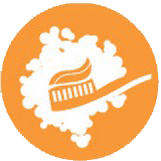
Serve on the front lines of global health. Health Volunteers work within their communities to promote topics such as nutrition, maternal and child health, basic hygiene, and water sanitation. Volunteers also work in HIV/AIDS education and prevention programs to train youth as peer educators, provide support to children orphaned by the pandemic, and create programs that provide emotional and financial support to families and communities affected by the disease.
Health Projects
More information to come …
Here’s What You Will Need To Study …
If you choose Health, take 3 courses from ONE of the following areas (i.e., all three courses must be from the same area).
Note: Some courses have prerequisites.Your adviser can assist you with appropriate course sequences.
Public Health, Nutrition, and Health Education:
- HE 320: Principles of Health Education
- HE 324: Human Sexuality
- HE 350: Epidemiology
- HE 360: Transcultural Health
- HE 375: Health in Developing Countries
- HE 435: Community Health
- HE 380: Nutrition and Health
- HE 440: Health Policy
- PR 418: Eastern-Western Approaches to Wellness, Health, and Healing
- PR 422: AIDS and the Global Society
- PR 433: Death and Dying
- SC 110: Nutrition Science
- AA 000: Any additional Health Elective (HE.EL-type courses) that also satisfies the university’s Global Understanding (GU-type) general education requirement. Note that some of these may be offered through other departments (e.g., AN 279: Culture, Health, and Illness).
Biology:
- Any three BY courses
Pre-Med:
- Any chemistry course at the 300 level or above
- Any course in anatomy and physiology
- Any course in biochemistry
- Any course in biology with laboratory
- Any course in general chemistry with laboratory
- Any course in genetics
- Any course in microbiology
- Any course in organic chemistry with laboratory
- Any course in physics with laboratory
- Any course in statistics
- MA 109: Pre-Calculus Mathematics
- MA 116: Calculus for the Biological Sciences
- PY 103: Introduction to Psychology
- SO 101: Introduction to Sociology
Nursing:
- Open to Pre-licensure BSN majors only. Any student in this program will be deemed qualified in this sector if they remain in good standing throughout the duration of their program.
… and Build 50 Hours of Related Field Experience through an Activity such as:
- Volunteer or work experience in such areas as HIV/AIDS outreach, hospice, family planning counseling, emergency medical technician (EMT) or CPR teaching/certification, maternal health, and hands-on caregiving in a hospital, clinic, or lab technician setting
- Counseling or teaching in health subjects (includes student teaching in Health and/or Physical Education through the School of Education)
- Working as a resident advisor in a dormitory, as a peer nutritionist, or as a sexually transmitted infections counselor
- Significant experience in mechanical repairs, construction, carpentry, masonry, plumbing, hydrology, or set design. Note that this could include seasonal or part-time work, whether pair or volunteer and need not be taken for course credit.
- Successful completion of a faculty-led study-away or service course, such as Guatemala Public Health, or the winter service trip to Haiti. Students and advisers should speak with an adviser within the Department of Health and Physical Education for currently available opportunities.
- Options are also available at Oasis, tlc, a local non-profit organization whose mission is to promote inclusion and acceptance of autistic individuals into their local communities by establishing environmentally exemplary farm centers that provide meaningful work, peaceful and healthy residences, and community interaction.
Below are some examples for related volunteer experience at MU:
